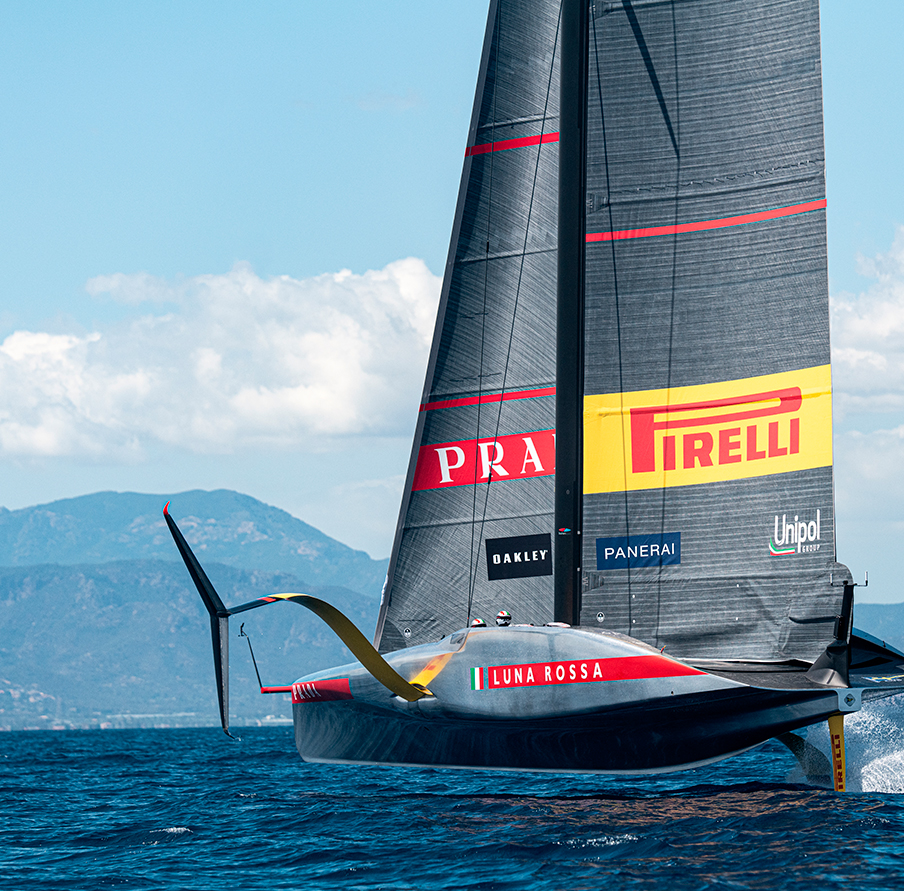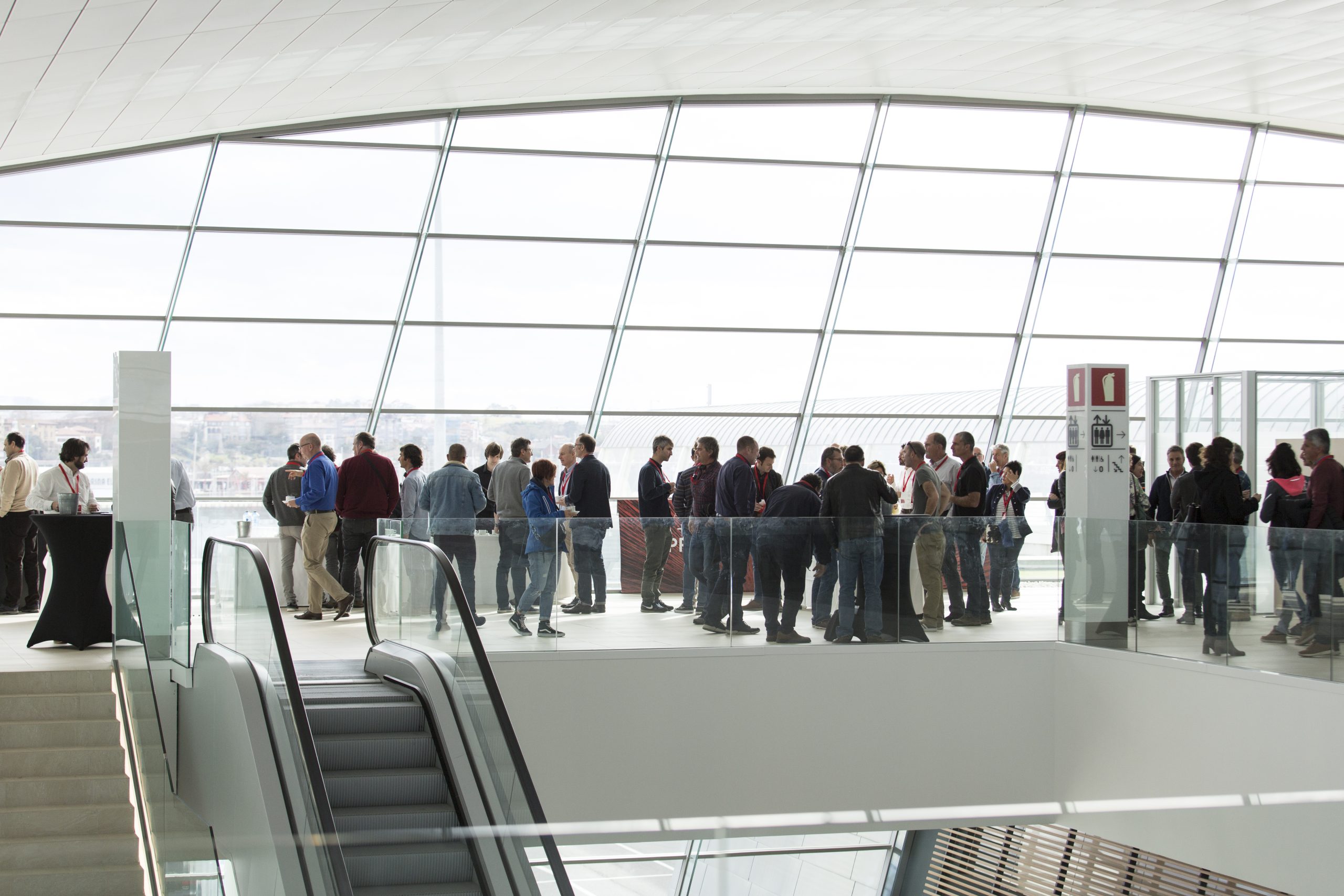At SAIL INN PRO we want to bring together all the sectors and agents that are part of the entire value chain of the sector:
GETXO / BIZKAIA (SPAIN) - DECEMBER 11 AND 12, 2024



FIFTH EDITION OF SAIL INN PRO, THE REFERENCE CONFERENCE ON INNOVATION IN THE SPORT OF SAILING, NAUTICAL LEISURE, MARITIME MOBILITY AND OCEAN SCIENCE.
Talking about innovation in the sport of sailing, nautical leisure, maritime mobility and ocean science.
+SAIL INN PRO is an event focused on the leisure marine industry that aims to be a meeting point between the local industry and successful foreign experiences.
We connect the main international and national professionals and experts, sharing knowledge and exploring new business models through an innovative vision in the nautical sector. The objective is to generate and expand new business opportunities and discuss the keys to the future of the sector.



Inspiration, relationships and business.
SAIL INN PRO Summary: 2′ 17″
Innovation
A reference event on innovation in the sport of sailing, nautical leisure, maritime mobility and ocean science.

Economic development
A B2B conference for professionals in the nautical industry aimed at economic development through innovation and the use of new technologies in the sport of sailing, marine mobility and the recreational nautical industry.

Knowledge
A place to share experiences, knowledge and best practices for the development and future of the nautical industry with the participation of the main stakeholders.

Networking
A space to connect with the main international and national professionals and experts, sharing knowledge and an innovative vision of the future of the nautical sector.

A unique event
At SAIL INN PRO we talk about the industry, incorporating agents from the environment and learning about external experiences, creating a space for reflection and inspiration.

They have visited us:
Addressed to:
- Shipbuilders & Shipyards
- Naval Architecture & Design Companies
- Sailors & Sailing Teams
- Technology & Solutions Suppliers
- Marine Mobility Solutions Suppliers
- Nautical accessories companies
- Shipowners & charter companies
- Nautical leisure Companies
- Energy & Engines Producers
- Start-ups
- Technology Centers
- Academics & Universities
- Training Centers
- Government organizations and administrations
- Port Authorities and infrastructure
- Nautical Associations

CONTENTS
CONTENTS
CONTENTS
CONTENTS
Wednesday, December 11
In collaboration with the leading nautical and engineering universities, we will have a selection of presentations of the best undergraduate and master’s degree projects and the best research projects related to the different sectors of application in nautical, being a platform to meet the future new professionals who will change and innovate in our sector.
16:00h - Opening
Presentation of the event.
16:10h - (Lecture) - University Project: Green Foiling Spain (Polytechnic University of Madrid)
Juan Antonio Pérez
Team Principal Green Foiling Spain
Presentation of the university project to build an electric vessel with hydrofoils, featuring automatic flight control and hydrogen fuel cell propulsion. The ultimate goal is to compete in the Monaco Energy Boat Challenge. The current team consists of 58 students from 7 engineering schools at the Polytechnic University of Madrid.
16:30h - (Lecture) - University Project: InnoBoat Bizkaia (University of the Basque Country)
David Boullosa
Subdirector at the School of Engineering of Bilbao
InnoBoat Bizkaia is a project formed by a multidisciplinary team from the School of Engineering of Bilbao, integrating expertise and knowledge from various engineering fields. This team is dedicated to developing innovative projects in nautical engineering and maritime sustainability. The initial objective is to design and build a cutting-edge sustainable vessel to compete in the Monaco Energy Boat Challenge in 2025.
16:50h - (Lecture) - RC Sailing Barcelona University Project (Fundación Barcelona Capital Náutica)
Alfons Echegaray
Academic Lead of the Project
RC Sailing Barcelona is an inter-university competition aimed at third- and fourth-year undergraduate students from various engineering disciplines. The competition focuses on conceptualizing, designing, and building a radio-controlled sailboat. Its purpose is to promote innovative sailing technologies, raise awareness about the nautical sector and the sport of sailing, and stimulate prototype design skills using the knowledge students acquire during their undergraduate studies, complemented by the specialized training weeks offered within the initiative’s framework.
17:10h - (Lecture) - TFG Project: "Innovative Perspectives for Aerodynamic Predictions in the Maritime Sector”
Naroe Delgado
Gratuated at the School of Engineering of Bilbao (University of the Basque Country)
This work examines the relationship between the geometry of a wing and its aerodynamic properties using Fourier series and artificial intelligence tools. By utilizing a wind tunnel to measure the aerodynamics of various airfoil profiles, a strong likelihood of this relationship was confirmed. This approach is presented as a feasible solution to study and establish the existing connection, with applications in sailboat trimming and the transition of merchant vessels towards wind propulsion.
Coffee Break
18:10h - (Lecture) - TFG Project: "Study, Modeling, and Virtual Recreation with CATIA V5 Software and Additive Manufacturing via FDM of the F50 SailGP Catamaran”
José Serrano
Gratuated at the Higher Technical School of Engineering (University of Seville)
This TFG project, inspired by the Spain SailGP Team, analyzes, models, and virtually recreates the F50 SailGP catamaran using CATIA V5 software. Through reverse engineering and 3D modeling, it delves into the internal and external structure of the vessel, culminating in a prototype manufactured via FDM. The project was awarded top honors for its excellence.
18:30h - (Panel) - Project-Based Learning (PBL) in Nautical Studies and Degrees
– Javier Calderón (Professor & Researcher at Polytechnic University of Madrid)
– Manolo Ruiz de Elvira (Naval Architect and Yacht Designer / Professor at Polytechnic University of Madrid)
– David Boullosa (Subdirector at the School of Engineering of Bilbao)
This roundtable discussion will explore the implementation of Project-Based Learning (PBL) methodology in nautical studies and degree programs. The panel will examine the goals of connecting students to industrial realities, enhancing their motivation, and developing practical skills through complex projects. Additionally, it will address experiences, outcomes achieved, and proposals for improving this methodology in naval engineering education.
Thursday, December 12
Presentations and roundtables with leading international and national professionals and experts, with the aim of sharing knowledge and exploring new business models through an innovative vision in the nautical sector. The aim is to generate and expand new business opportunities and discuss the keys to the future of the sector.
9:30h - Institutional Reception
Ayuntamiento de Getxo.
Diputación Foral de Bizkaia – Bizkaiko Foru Aldundia.
10:10h - (Lecture) - The Future of sustainable maritime transport with 100% wind propulsion for fast and reliable transatlantic routes
Karlos Hebrard-Epalza (VELA-Sail for Goods)
This lecture introduces VELA-Transport, an innovative maritime transport project powered entirely by wind, created by French sailor François Gabart. Using technology derived from racing and offshore racing, it enables transatlantic crossings in under 15 days while ensuring sustainability, quality, and reliability. With the construction of the world’s largest cargo trimaran, the project aims to decarbonize the maritime sector by establishing a regular line between the French Atlantic coast and the U.S. East Coast starting in 2026.
10:30h - (Lecture) - Quantum Computing: driving a new era of innovation for the industry
Iñigo Pérez (Ayesa Ibermática)
Quantum computing can revolutionize optimization, simulation, and calculations in naval design, offering extremely high processing capacity for aerodynamic and hydrodynamic calculations. It helps eliminate bottlenecks in processing, improves the precision of calculations for key decision-making, and accelerates the development of advanced technologies, opening up new, currently unknown possibilities with significant impact on the nautical industry.
10:50h - (Panel) - Data Analytics Technology: the America’s Cup revolution transforming naval design and redefining the nautical industry
– Elvira Llabrés (INEOS Britannia)
– Andrea Emone (TP52, AC75-37th Americas Cup-Alinghi Red Bull Racing)
The America’s Cup leverages advanced sensor and data analytics technology to optimize the performance of sailboats. Multiple sensors monitor speed, forces, loads, and adjustments, and processing this vast amount of data is key to enhancing and optimizing performance, strategy, materials, and design. In this roundtable, we will explore how these tools can also be applied to transform the broader nautical industry.
Coffee Break
12:00h - (Lecture) - Autonomous robotic buoys for service and events management on water: America’s Cup case study and future applications
Pep Subirats i Vila (MarkSetBot/Club de Vela La Ballena Alegre)
MarkSetBot is the first advanced robotic buoy system used in the America’s Cup and other regattas. These autonomous, self-propelled, GPS-enabled buoys eliminate the need for anchors, protecting the seabed, and reduce reliance on support vessels, offering a more precise, sustainable, and straightforward approach to maritime service management.
12:20h - (Lecture) - Lithium Batteries in the nautical sector: innovation, performance, and ensuring safety for navigation
Carlos Freire (Li-lon Batteries & e-systems consultant / American Magic)
This lecture explores the state of the art of this technology in the nautical sector. It will cover various innovative battery systems, how they optimize the energy performance of boats, and key measures to ensure their safety. An essential analysis to drive sustainability and energy efficiency in modern navigation.
12:40h - (Panel) - Integration, design, and efficiency in Electric Propulsion Systems
– Manolo Ruiz de Elvira (NautaTec)
– Adria Fadrera (Nauta Systems)
– Jon Duroudier (NX Technologies)
– Pablo Prieto (Tecnalia)
In recent years, the electrification of boats with electric motors and lithium batteries has gained popularity due to their efficiency and low environmental impact. However, these systems require high robustness, efficient management, and compact, optimized control electronic designs. Effective integration must address challenges such as energy storage, costs, weight, and volume to ensure profitability and functional safety. This roundtable will explore the realities, applications, and opportunities of these systems, featuring experts from key areas involved in the development of electric propulsion for more sustainable and efficient navigation.
Lunch
15:00h - (Panel) - Innovation and Technology in the America’s Cup: looking ahead to the future of naval architecture
Roger Frigola (Emirates Team New Zealand – Winner 37th America’s Cup)
José Luis Vela (American Magic – Challenger 37th America’s Cup)
Carlos Freire (American Magic – Challenger 37th America’s Cup)
Tomás Ruiz (D3 Applied Technologies / Alinghi Red Bull Racing – Challenger 37th America’s Cup)
Through a discussion with these four America’s Cup experts, the panel will explore the major innovations and new technological developments in the competition and their influence on today’s naval architecture. The session will uncover how these solutions are being integrated into the industry, driving the creation of more efficient, sustainable, and faster boats.
15:40h - (Lecture) - Six Degrees Of Freedom motion simulators for nautical training and design
Maarten van Donselaar (Cruden B.V.)
This lecture delves into the use of advanced six degrees of freedom motion simulators with hexapod or 6-DOF platform technology. It will examine their applications in nautical training, design, leisure, and industrial uses. Equipped with precise and dynamic actuators, these platforms deliver realism and reliability in simulations, optimizing performance, safety, and sustainability across industries such as maritime and automotive sectors.
16:00h - (Lecture) - A New Circular Economy in the composites Industry for nautical applications
Fabio Bignolini (Northern Light Composites)
The lecture addresses an approach towards a new circular economy for the composites industry, focusing on sustainable solutions for the end-of-life of boats and accessories. With thermoplastic resins, natural and recycled fibers, it promotes the reuse of materials, reducing waste and revolutionizing the nautical market with recyclable designs.
16:20h - (Lecture) - Pathways to Propulsion Decarbonisation: Key Technologies for emission reduction in recreational boats
Jose Luis Fayos (ANEN)
The Pathways to Pathways to Propulsion Decarbonisation for the Recreational Marine Industry report by ICOMIA examines the main technologies to reduce carbon emissions in recreational boats. It compares environmental impacts, costs, performance, and feasibility of electric, hybrid, hydrogen, and sustainable fuel systems. The report highlights the need to combine various solutions to suit diverse nautical experiences.
16:35h - (Panel) - Designing the Future of Zero-Emission Multi-Purpose Maritime Mobility with Foiling Vessels and Other Systems
– Tomás Ruiz (D3 Applied Technologies / Alinghi Red Bull Racing – Challenger 37th America’s Cup)
– Nacho Castañeda (MP Yacht Design)
– Manuel Fraga (Foilchemy)
The presentation will explore how new design concepts, leveraging technologies such as foiling and other systems, are revolutionizing maritime mobility for passenger transport and other applications. With innovative and efficient electric designs, these boats offer greater speed, sustainability, and zero emissions, surpassing traditional transport in low environmental impact and operational costs, while paving the way for a greener and more accessible future in maritime transportation.
Farewell drinks & Networking time
Speakers:
Locations:
BiscayTIK (Getxo)
The session on December 11th will be held from 4:00 pm to 7:00 pm at the BiscayTIK building in Getxo.

Olatua (Getxo)
The session on December 12th will be held from 9:00 am to 6:30 pm at the Olatua building (Cruise Terminal) located at the Getxo Marina.

Tickets:
Day 1
Free
- University Projects
- 5 Talks
- 2 Undergraduate Thesis Presentations
- 1 Master’s Thesis Presentation
- 8 Speakers
- Coffee Break
- Networking
Day 2
90 €
- 7 Talks
- 4 Panels
- 20 Speakers
- Lunch Included
- Networking Spaces
- Coffee Breaks














